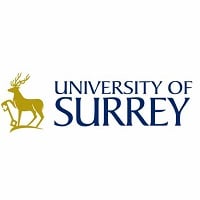Innovative Media Technology
Position Details (PhD Program)
This Innovative Media Technology PhD programme at the University of Surrey explores research into the technologies of motion picture, television and streaming media.
The research at the University of Surrey aims to engage with and advance the state-of-the-art technologies in both human perceptions of video quality and applications of computer vision and artificial intelligence. Surrey also works externally with industry and other research groups including BBC Research and Development and Adobe Research.
Career opportunities
The Innovative Media Technology PhD will prepare you for success at each stage of your project. The structure is designed to provide intensive graduate preparation for a future career and is suitable for either part-time or full-time candidates. The normal length of study leading to a PhD is three to four years full-time . Part-time PhD study normally takes six to eight years.You’ll begin your project with a thorough review of academic literature in relevant areas, which will lead to a critical/analytical report. The conclusions to this report will suggest an appropriate next step, which will normally be an experimental study, designed to test a hypothesis you have formulated from your literature review.You’ll be encouraged to collaborate with researchers at universities, research establishments and industries around the world. Surrey offers a friendly environment that nurtures openness and collaboration. You’ll also be encouraged to present your research at well-renowned national and international conferences to gain experience and establish networks with leading researchers.You’ll be allocated two Surrey-based academic supervisors, in addition to any external collaborative supervisors. Your principal supervisor will be an expert in your area of research, and they’ll be monitoring your research progress on a regular basis. Your supervisors will help you define the initial objective and scope of your research, and to refine these as your project evolves. They’ll direct you to resources to help you learn the necessary experimental, theoretical or computing skills you need, and they’ll be able to advise you on how to complete your PhD and your thesis.
Research
- Multimedia transmission
- Algorithms for visual media quality
- Methodologies for human perception of visual media quality, including its application in other fields such as medical imaging and teleoperated driving
- Computer vision
- Creative arts machine learning
- Human activity recognition and human pose understanding.



 University of Surrey
University of Surrey